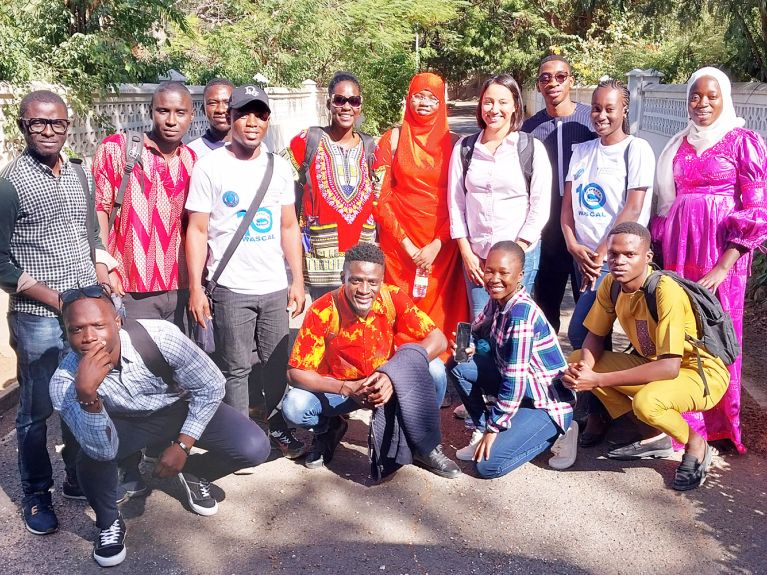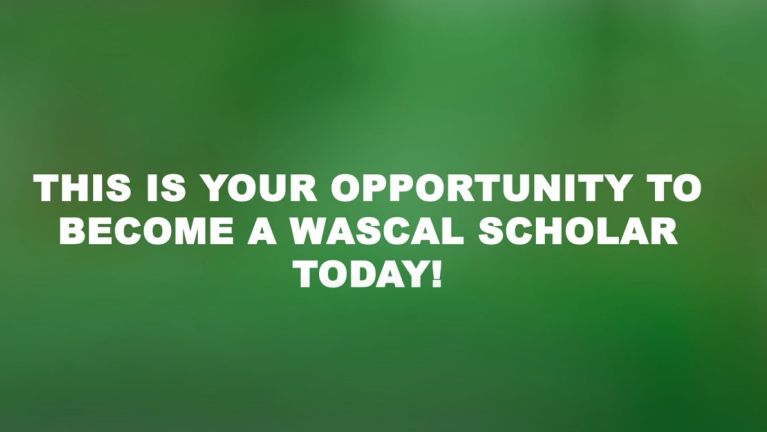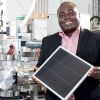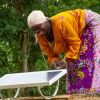Green hydrogen from Africa
International master’s programme qualifies students from 15 West African countries for the future topic of green hydrogen.

Sun and wind – these natural resources are in abundant supply in the Global South. “This makes Africa a very suitable place for producing green hydrogen,” says Dr Solomon Nwabueze Agbo from Forschungszentrum Jülich. Since October 2021, this German research institute has been contributing its considerable expertise to energy research in West Africa. In cooperation with RWTH Aachen University, the University of Rostock and the West African Science Service Centre on Climate Change and Adapter Land Use (WASCAL), which is based in the Ghanaian capital Accra, 60 students from 15 West African countries are currently enrolled on the new International Master’s Programme in Energy and Green Hydrogen (IMP-EGH). WASCAL is funded by the Federal Ministry of Education and Research (BMBF) and is a partner of the German Academic Exchange Service (DAAD).
The first programme of its kind in the region, it is being funded, initially to the tune of 16 million euros until 2025, by Germany’s (BMBF) within the framework of its Innovations for the Energy Transition programme. “Together, our aim is to build local capacities to address a global future topic,” says Jülich Project Leader Agbo. “We are training young people from West Africa so that they can find innovative solutions in the areas of renewable energies and green hydrogen technologies, thereby promoting development in Africa.”
Hydrogen producer of the future
Hydrogen technology is an important field when it comes to storing renewable energy in the future and thus to transforming the global energy system. “At the present time, however, roughly 98 per cent of worldwide production of hydrogen is not climate-neutral – that is to say, it generates carbon emissions,” explains Marcel Kottrup, a research associate at the Chair of Management Accounting at RWTH Aachen University who coordinates the Economics, Policies and Infrastructure track of the IMP-EGH. And this urgently needs to change, he adds. “This is a very good opportunity for West Africa to become a future producer of green – i.e. climate-neutral – hydrogen, while at the same time driving socio-economic development in the region,” says Kottrup. “The advantage of this region, with its more plentiful resources of renewable energies, is that producing green hydrogen here is cheaper than at sites in the Global North.”
Dieses YouTube-Video kann in einem neuen Tab abgespielt werden
YouTube öffnenThird party content
We use YouTube to embed content that may collect data about your activity. Please review the details and accept the service to see this content.
Open consent formCommitted to a better world
The idea is that the students taking the IMP-EGH master’s programme will one day become experts in green hydrogen and will embrace the opportunities and challenges associated with this field. Many of them can hardly wait to get started, emphasises Fatou Sarr from Senegal: “We want a better world and cannot wait for development and sustainability. We are doing this master’s degree to change something, in other words.” A recipient of multiple grants, the young physicist is an activist committed to increasing the political participation of young people in Africa. She has long been campaigning in international bodies for the digital transformation, for the technologisation of her country, and for the implementation of the SDGs of the United Nations. “I want to do something with impact for my country. That’s the most important thing for me.” Sarr is now getting herself the expertise she will need to establish the political and economic infrastructure for green hydrogen technology. To this end, she is specialising in the third semester of her master’s degree on the area of economics, policies and infrastructure.
A diverse course of study with promising career opportunities
During the first two semesters, all 60 students take basic modules together at the Université Abdou Moumouni de Niamey in Niger. When they subsequently begin to specialise in one of six areas – which include green hydrogen technology, bioenergy and photovoltaics – the students are spread among three other partner universities in the programme: the Université Felix Houphouet Boigny (Ivory Coast), the Université de Lomé (Togo) and the Université Cheikh Anta Diop de Dakar (Senegal). This is also where concrete cooperation with the German scientists from Jülich, Aachen and Rostock starts; they provide not only preparatory digital teaching material, but above all give lectures and seminars at the West African partner universities in a blended learning format. In their fourth semester, the students then come to Germany to write their master’s thesis – four specialist fields are supervised by Jülich and one by the University of Rostock. Fatou Sarr’s thesis is being supervised by RWTH Aachen University; once complete, she will defend it at the Université Cheikh Anta Diop de Dakar.

The career opportunities that will then be open to the students are very wide-ranging. Whether they want to start their own business or work in industry, at local government level or in international institutions, the graduates will be well prepared to take on leadership roles, says Solomon Agbo: “It is important for development in Africa to be driven by Africans. That is what the master’s programme wants to achieve.” There is certainly no lack of motivation: there were 900 applications when the programme was first advertised at WASCAL. Fatou Sarr is busy telling everyone about how great her degree course is. “It is important that many people in Africa profit from this knowledge.” Another thing that impresses her about the course is the international networking that the African students engage in. “In the future, we will have to cooperate across national borders and be able to rely on one another – we are currently laying the foundation for this.”


